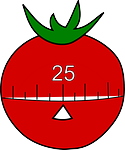 I am now well into the process of rewriting my first draft. I have written a synopsis I am happy with and last week, I started rewriting, following the synopsis as closely as I could. On Monday and Tuesday, which are my days off from my day job, I got so much rewriting done, it was scary but then I reached the point where I could go no further without a massive rewrite and reorder of several chapters. Since Tuesday, I have done no work on my novel at all, even though I have had plenty of opportunity to do so. I wanted to write but I was struggling to put the new scenes together in my mind and I realised they might affect the timeline of my story quite dramatically as well. I felt like it was going to be too difficult, if not impossible to do this writing and so I simply stopped.
I am now well into the process of rewriting my first draft. I have written a synopsis I am happy with and last week, I started rewriting, following the synopsis as closely as I could. On Monday and Tuesday, which are my days off from my day job, I got so much rewriting done, it was scary but then I reached the point where I could go no further without a massive rewrite and reorder of several chapters. Since Tuesday, I have done no work on my novel at all, even though I have had plenty of opportunity to do so. I wanted to write but I was struggling to put the new scenes together in my mind and I realised they might affect the timeline of my story quite dramatically as well. I felt like it was going to be too difficult, if not impossible to do this writing and so I simply stopped.
By yesterday, I had decided that this could not carry on, I had to do something about it, but what? First of all, I made sure to get all my jobs done so that I would have a clear day for writing today. Unusually, I have to work tomorrow but I didn’t want to miss out on one of my writing days so I checked off that goal by the end of the day. My plan was to make a start on writing this morning at nine o’clock and to write as much as possible throughout the day. Well, nine o’clock came and went as I wasted time on Twitter and put off having a shower. I was getting very annoyed with myself but seemed incapable of doing anything about it. Then help came from an unexpected source, although it was another writer so I shouldn’t have been surprised since I have found many generous writers on this journey so far 🙂 Helena Fairfax is another romance novelist and member of the RNA and she told me about a technique she uses to help herself get down to writing. It’s called the Pomodoro Technique and you can read about it on her blog here.
The basic idea is that you write or edit or do whatever other task for twenty-five minutes and then take a five minute break. When you have done four stints, you can take a longer break. This is said to improve your mental agility and I should really have heard about it before but haven’t, although I have come across similar things. Somehow though, this has allowed me to face my fear and to conquer it and I have now done six, yes, six, separate stints today and may well fit another one in before cooking dinner. By working in bite-sized chunks like this, I have kept focussed, putting my ‘phone and my computer on silent, and I have felt such a great sense of achievement at writing that difficult chapter and coming out the other side.
The trouble is that there are so many distractions and it’s easy to get side-tracked and I’ve often felt very disappointed when I come to the end of the day and find that I have done so little. Now I must admit to feeling a bit smug today but do you know, I think I deserve it 🙂
With grateful thanks to Helena. I hope this helps you too as you face the fear but if you have another tried and tested technique, do let me know in the comments. As always, thanks for reading.
